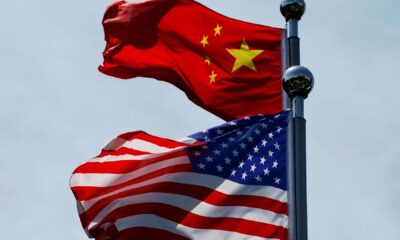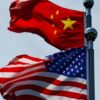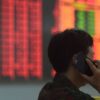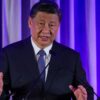Finance
China’s EV race to the base leaves a couple of conceivable winners
China’s electrical automotive price cutting war displays negligible signal of letting up, striking extra power on corporations to live on. Tesla ‘s China gross sales fell through 15% in Might from a yr in the past, China Passenger Automotive Affiliation knowledge confirmed. BYD , against this, reported a 14% year-on-year gross sales building up because it held onto first playground available in the market through quantity, however even it needed to announce genius reductions as gross sales expansion slowed from April’s age. “We expect additional price competition in the coming weeks as BYD is still lagging behind its sales target,” stated a group of analyst led through CLSA analyst Xiao Feng in a document Wednesday. Week the analysts nonetheless have a top conviction, with an outperform ranking on BYD’s Hong Kong-listed stocks, they see Geely because the ”easiest situated” for investors as it is striking the optimal balance with its internal business structure and competing on vehicle price. CLSA has a price target of 483 Hong Kong dollars ($61.55) on BYD, and a 23 HKD target on Geely, also listed in Hong Kong. That’s upside of nearly 20%, and 28%, respectively, from Friday’s close. Geely is a large conglomerate with electric vehicle brands Galaxy, Zeekr and Lynk and Co., which share some of the same tech and manufacturing systems. “Geely’s Galaxy NEV emblem has effectively focused BYD’s frequent fashions with greater specifications and decrease costs,” Macquarie analysts said in a report Thursday, citing a call with an auto dealer who manages dealerships for BYD, Geely and Xpeng in the relatively affluent Suzhou region near Shanghai. “The knowledgeable believes Geely’s good fortune will proceed, as it’s nonetheless ramping up unutilized fashions to compete with BYD’s complete style line-up,” the report said. The Macquarie analysts have a price target of 22 HKD on Geely and rate the stock outperform. But they like U.S.-listed electric car startup Xpeng even more, with a $24 price target. Xpeng is likely to benefit from near-term market share gains given its advanced driver assist system and upcoming car models, the analysts said. The latest delivery data showed Xpeng delivered more than 30,000 cars in May for a seventh straight month, a rare feat among its immediate peers. The company last month also launched a new car under its lower-priced Mona brand. Among publicly listed new energy vehicle companies, a category that includes battery-only and hybrid-powered cars, Leapmotor and Li Auto have proven relatively stable, each with deliveries of more than 40,000 vehicles in May. Both companies have Hong Kong listings, while Li Auto also trades in New York. “Via a incessantly increasing product matrix and cost-effective fashions, Leapmotor has completed a strong marketplace proportion within the Chinese language aggregate EV marketplace and has sturdy expansion doable,” the CLSA analysts said. They have a price target of 72 HKD, or more than 30% upside from Friday’s close. Leapmotor reported a net loss in the first quarter, however, compared with profit in the fourth quarter. But Li Auto maintained profitability in the first quarter, according to results released on May 29. “We nonetheless see sufficient upside as a better-than-feared 1Q will have to encourage investor conviction about sequential fix in 2Q,” Morgan Stanley analysts said in a May 29 report. They have a price target of $36, for upside of more than 20% from Thursday’s close. “The control group has discovered its age for a gentle and cast comeback, footing a extra subject matter resurgence of quantity/margins into 2H25 amid unutilized style launches,” the analysts added. “Li Auto’s top class style lineup can steer unclouded of the fierce pricing festival within the aggregate marketplace.” Li Auto is best known for its SUVs that come with a gas tank for extending the battery’s driving range. Prices start around 244,000 yuan ($34,000). Industry giant BYD in contrast now sells some cars at 55,800 yuan, with most models falling in the 100,000 yuan to 200,000 yuan price range. The company also has a high-end sub-brand called Yangwang, which prices cars at well above 1 million yuan. Analysts that still like the stock see potential in BYD’s overseas expansion. The narrative on BYD among European investors “sounds extra constructive,” contrary to more cautious sentiment in China following the automaker’s recent price promotions, JPMorgan’s Nick Lai, head of Asia Pacific auto research said in a report Wednesday. Lai and his team also cited conversations with senior BYD management in London in the last week. “All in all, we store our long-term sure view at the corporate and consider the (income) contribution from the out of the country marketplace and BYD’s top class portfolio will an increasing number of play games an notable function,” the JPMorgan analysts said. “We estimate that BYD’s out of the country trade and top class manufacturers will in combination give a contribution over 40% of its car income in 2025 (up from 20-25% ultimate yr) despite the fact that they account for simplest about 20% of quantity.” The analysts rate BYD overweight, with a price target of 600 HKD. However, the risk of a flood of cheap cars into markets such as Europe have prompted tariff increases. In China, official commentary is also sounding the alarm about excessive competition. “We consider an finish to the wave price cutting war will come right down to easy economics,” the Macquarie analysts said, pointing out that production capacity for both electric and traditional vehicles is more than 50 million units, well above the annual wholesale volume of 25 million to 27 million vehicles. “Thus, the marketplace will most probably stabilize both by the use of upper call for or right-sized capability and consolidation,” the analysts said. “We consider this may occasionally snatch a minimum of some other 3 to 5 years.” — CNBC’s Michael Bloom contributed to this report.







